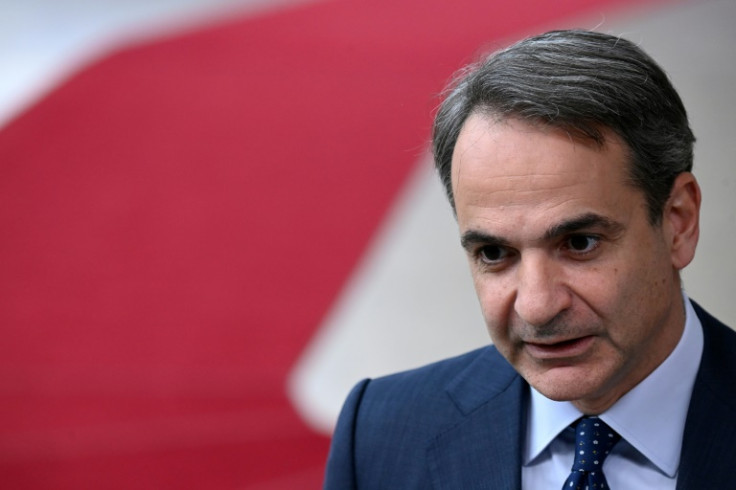Who Will Win The May 21 Greek Elections?
The pre-election campaign is reaching a fever pitch this weekend in Greece, with the large and small parties taking their message to neighborhoods and TV channels.
Yet the outcome of the critical May 21 elections is all but certain, given the country's new electoral system, which makes it hard for the winning party to gain a majority and form a new government.
That means Greece may not have a real winner on May 2, leading to a second round of elections, which will determine the new government.
Political analyst Gregory Nikitas told International Business Times that Greece and the political parties are getting ready for double elections with two different electoral systems.
"All the polls point to the center right-wing party of 'New Democracy' with Prime Minister Kyriakos Mitsotakis as the winner of the first round, 5-6% points ahead of the former ruling left-wing party of Syriza led by former Prime Minister Alexis Tsipras," he said.
But the May 21st elections won't end with the formation of a new government of one party or a coalition of several parties. "Thus, the country will head to a second election, perhaps on July 2," Nikitas added. "At that point, a combination of the election rules, which favors the party with the most votes, and the fear among the electoral body of the risk of the country descending to political chaos, will lead into a new government formed by New Democracy, either alone or with one of the smaller parties."
That means the outcome of the May 21st elections will still significantly impact the second round in July.
New York-based political analyst Irina Tsukerman sees New Democracy getting ahead of Syriza in the May 21st elections. "According to polls, the New Democracy party is leading 35.4% against the Syriza opposition party, which is currently at 27.7%," she told IBT. "This is a significant enough statistical difference that falls about three-point rounding error ground placing New Democracy in a safe position unless some unexpected development occurs between now and a week from now."
Nonetheless, she also doesn't expect New Democracy's lead to be sufficient to gain a majority in the Parliament due to the new electoral law that provides proportional representation in the new government. Thus, the need for a second runoff in early July, where the platform of each political party and the record of the leaders of the two major parties, Mitsotakis and Tsipras, will play a decisive role.
"According to the polls, Mitsotakis leads on managerial, economic and security issues, while Tsipras leads on social problems," Nikitas, who sees these issues playing a critical role in the second runoff, added.
Tsukerman sees the austerity measures launched by the New Democracy Party to fight inflation and the train crash as a hurdle for Mitsotakis bet to win re-election. "Some have questioned the New Democracy linked austerity measures, or rather, their effectiveness, in light of the train crash, and there are also questions about the seriousness of the commitment to reforms," she explained.
But she acknowledges that the mismanagement that has led to the tragedy is a cross-party institutional failure and looks for whichever government leads to make transparent changes.
"The immediate reaction was to blame the current New Democracy-led government for failing to implement measures that would prevent such incidents, but with time passing, the reaction has evolved into being non-political," Tsukerman added. "While the political pressure over the train crash subsided, the opposition has tried to use global issues such as high inflation and the wiretapping scandal (which has been linked to the opposition-backed campaigns) to raise populist ire against the government."
Meanwhile, Nikitas points to something missing from the campaigns and platforms of all parties that claim the popular vote: a vision for the economic development of Greece.
"The country needs a stable government with a vision for economic development and the determination to launch the necessary legislative agenda to realize it," he added. "This sort of government must prepare Greece for the 2024 return of the Stability Accord, which will impose a new financial austerity on the country."

© Copyright IBTimes 2024. All rights reserved.






















